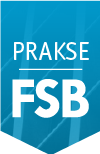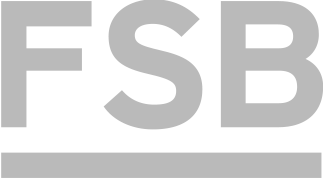International Exchange
Course details
Student Mobility > Programmes and Courses > Courses in English > Course detailsQuality Management
- Teaching:
- ECTS:
- Level:
- Semester:
- Prerequisites:
- No prerequisites.
- Load:
Lectures Exercises Laboratory exercises Project laboratory Physical education excercises Field exercises Seminar Design exercises Practicum 30 0 0 0 0 0 0 0 - Course objectives:
- Description of the current world trends in the field of Quality Management. Quality Management Systems. Student"s education for the practical application of tools and methods for quality management.
- Student responsibilities:
- Grading and evaluation of student work over the course of instruction and at a final exam:
- Passing two preliminary exams or a final written examination: 100 %.
- Methods of monitoring quality that ensure acquisition of exit competences:
- Attending lectures, excesises. Discussion. Consultations. Course Quality assessement through the University questionnaire.
- Upon successful completion of the course, students will be able to (learning outcomes):
- After successfully completing the course, the student will be able to: Critically evaluate the contemporary concepts of quality. Apply quality management tools and methods. Use statistical packages for monitoring and evaluating the quality of the process. Evaluate the appropriateness of the conclusions derived from the data. Competently participate in the process of implementing quality systems in companies.
- Lectures
- 1. Today"s significance of Quality. Costumer Satisfaction. Customer Satisfaction Measurement Methods. Development of Quality Management System. TQC.
- 2. Basic principles of TQC. Role of Quality Management System in the Modern Business Management.
- 3. Process approach to Quality Management.Connection of Management System.
- 4. Components of the Quality Management System. Policies and aims of Quality. System Documentation. Quality Manual.
- 5. Basic principles of Quality Management. The Role and Responsibilities of Management. Tasks, responsibilities and authorities within the system. Responsibility Matrix.
- 6. Communications. Motivation and Rewards.Management review.
- 7. Resource Management. Human Resources. (Knowledge Management) Infrastructure, Work environment, Financial Resources. Process of permanent education.
- 8. Suppliers. Business cooperation. Interested parties.
- 9. Process of permanent improving. Process efficiency and effectiveness. Quality planning and determination of measurable aims of quality.
- 10. Method of permanent improving. Prerequisites for implementing improvements. Priority selection Methods.
- 11. Fundamental elements of FMEA analysis.
- 12. QFD.
- 13. Methods for determining Measurement System Capability. Elements for estimation of capability.
- 14. Contemporary requirements of Product and Production Quality Control.
- 15. Trends in development of Quality Management System.
- Exercises
- 1. Discussion regarding Quality Definitions. Examples of customer satisfaction measurement.
- 2. Practical demonstration of TQC fundamentals.
- 3. Example of Quality Management Process Model. Constructing the Process Interaction Matrix.
- 4. Discussion regarding Components of Quality Management System according to ISO 9001: 2000.
- 5. Discussion regarding Quality Management System Responsibilities. Process owners. Possibility of Responsibility Transfer.
- 6. Basic elements of Motivation and Rewarding. Construction of Ishikawa diagram regarding motivation.
- 7. Description of training in the field of Quality. Explanation of individual topics within this training.
- 8. Supplier Evaluation. Examples of Quality Indices.
- 9. Examples of Process Capability and Efficiency calculation.
- 10. Example of data analysis and data processing with the aim of choosing priorities.
- 11. Explanation of Example of FMEA analysis.
- 12. Example of construction QFD matrices.
- 13. Example of tolerance analysis and estimation of Measurement System Capability.
- 14. Specific generic requirements for the management of measurement systems (ISO 10012: 2003).
- 15. Final Test.
- Compulsory literature:
- Thomas Pyzdek, Paul Keller, The Six Sigma Handbook, Fourth Edition Hardcover - April 22, 2014
David Hoyle, Quality Management Essentials 2007
Feigenbaum, Total Quality Control, McGraw-Hill, 1991 - Recommended literature:






